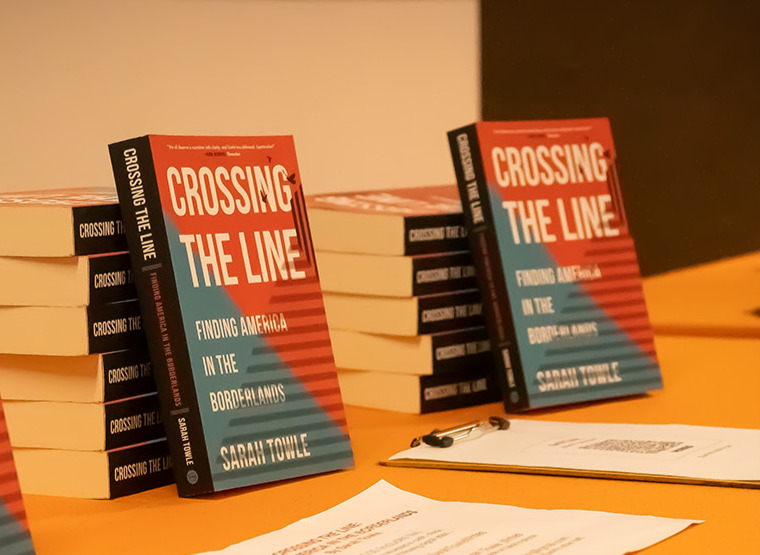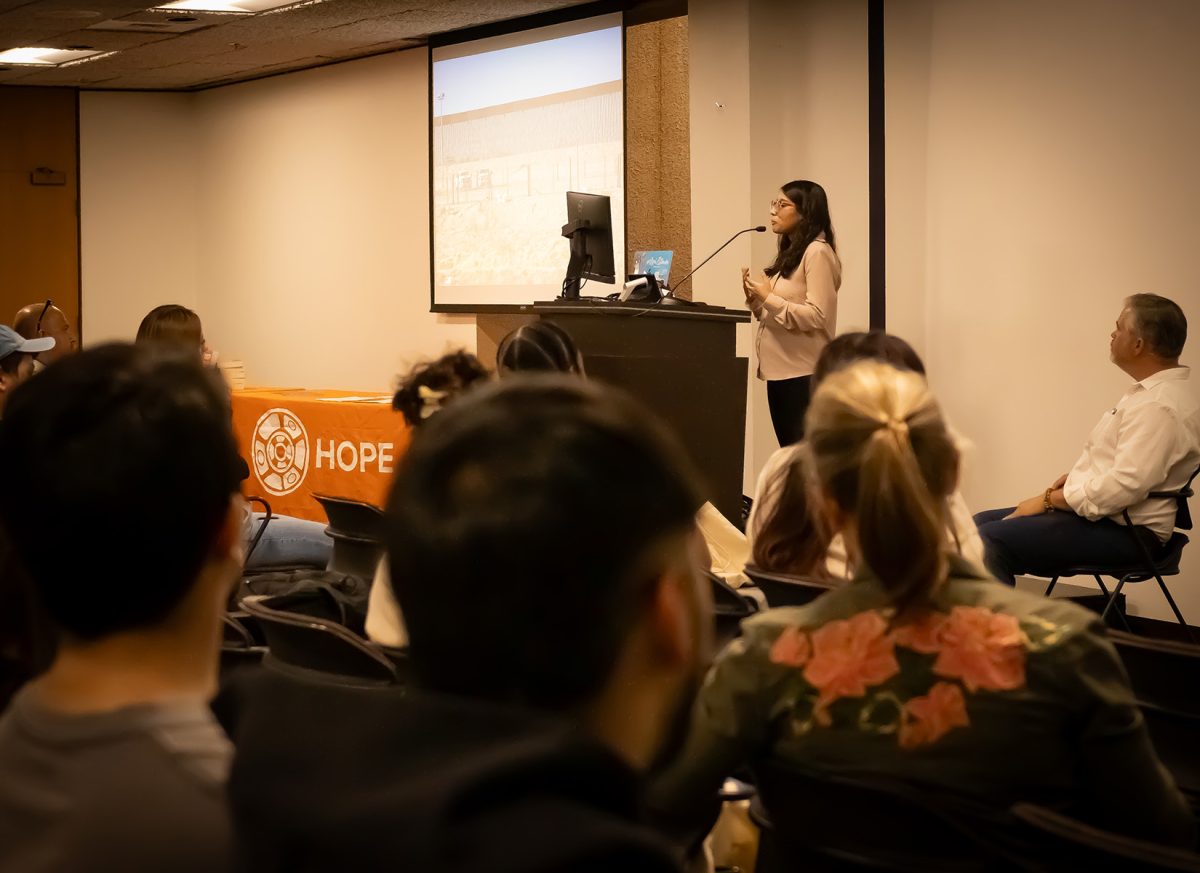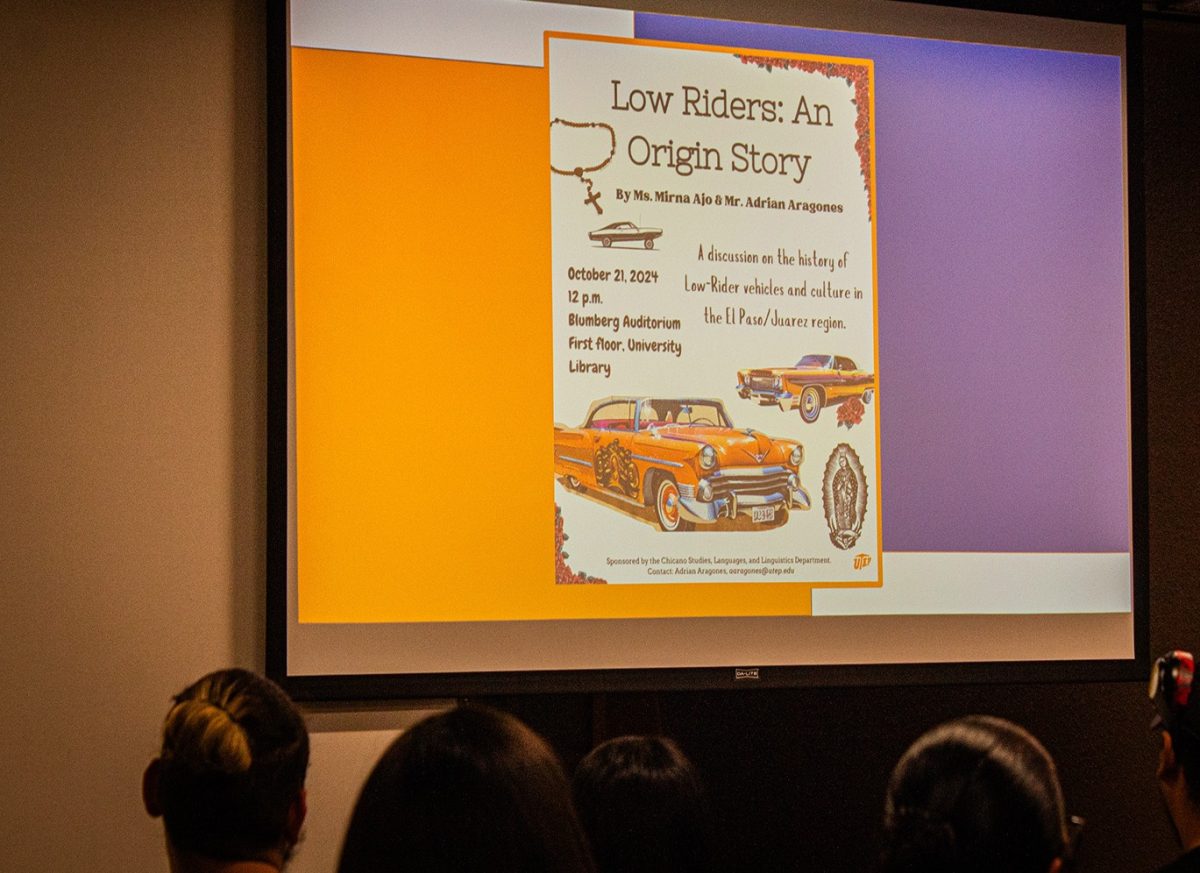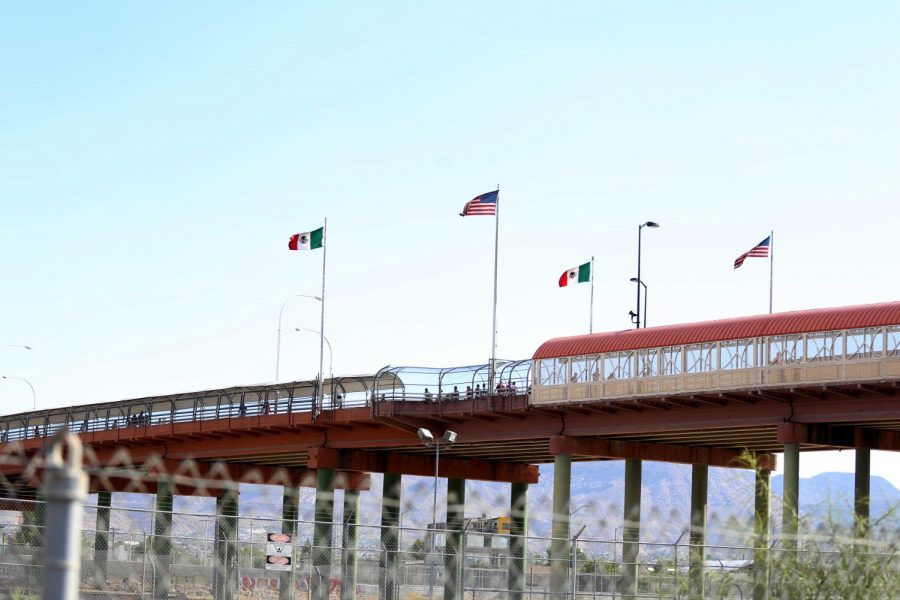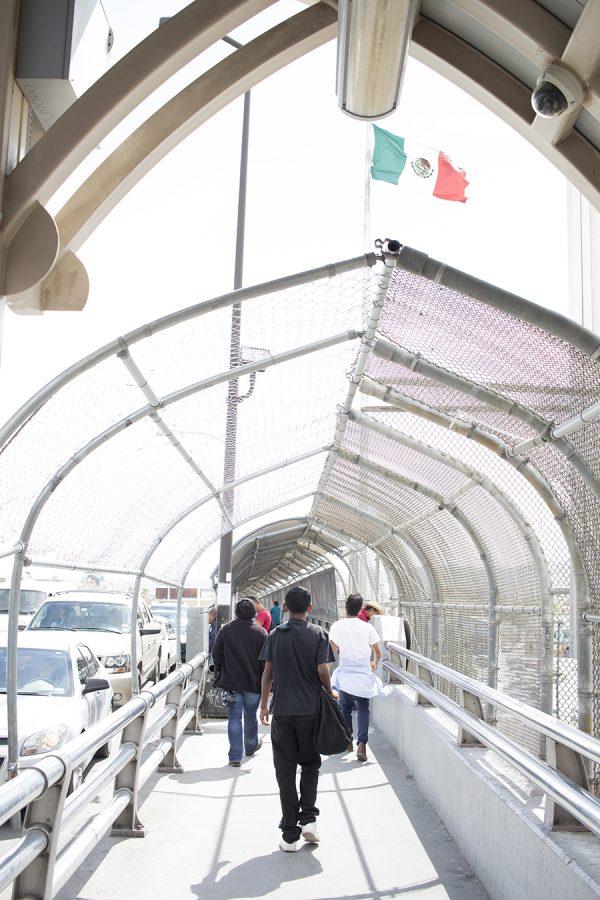The Hope Border Institute (HOPE) along with the UTEP Department of Chicano Studies, Languages, and Linguistics hosted “Elections and Migration: Challenges, Opportunities, and Hopes” Oct. 17.
The event invited students and community members to engage in discussions about deadly immigration policies and the community’s resistance to them.
Aimée Santillán, the policy analyst for HOPE discussed the “Securing the Border” proclamation signed by President Biden that took effect June 5. This proclamation suspends and caps the entry of migrants through the U.S.-Mexico border apart from those with lawful permission or those who meet certain criteria.
Santillán explained that this has made it harder for migrants to seek asylum by restricting their access to U.S. soil and raising the criteria for eligibility.
As a result, the demand for asylum is higher than the access, leaving many migrants stranded in Mexico while they wait months to over a year for an initial appointment with a U.S. Customs and Border Protection (CBP) officer.
“You have migrants being exploited, you have migrants being kidnapped, trafficked in Mexico because there’s no access,” said Santillán. “People are not able to move quickly and so that leads to a lot of very vulnerable people in very dangerous situations, which has created a challenge for our community because it has brought a lot of people trying to get caught on across undetected.”
Michael DeBruhl, director of Sacred Heart Shelter and former Border Patrol agent, noted that while migrant traffic has decreased from a peak of 14,000 to 17,000 people a day to less than 400, migrant deaths have risen, with 175 reported in the 2024 fiscal year.
DeBurhl states that the number of migrant deaths is uncertain, as many try to cross into the U.S. in remote border areas and may remain undiscovered for years if they perish.
Additionally, El Paso County along with 32 other counties along the 2,000-mile border, do not have an accurate system to count migrant deaths, meaning the number could be higher.
“There’s no information that is given to the general community here in El Paso, to the general citizen,” said DeBurhl. “We really don’t know anything about what happens out there. We don’t know that there’s 175 people who died in the last 12 months, so we don’t have any dialogue talking about that problem and because of that, we cannot react effectively to this kind of emergency.”
Dylan Corbett, the executive director of HOPE encouraged the audience to join HOPE’s desert walks by passing around the ID of a Guatemalan woman, Laura Morales, which he found on one of these desert walks.
“I don’t know if Laura is dead,” said Corbett. “I don’t know if she was found, I don’t know if she was apprehended, but I found her things in the desert and I keep her ID in my wallet because it can’t just be a number. I think we have to let ourselves be interpelado por la realidad [challenged by reality], to be affected and impacted by the humanity of what’s happening.”
HOPE also has the Every Death Counts campaign, where community members are invited to join the institute in advocating for policies at the El Paso County Office of the Medical Examiner so that there is a better system put in place, so every death is counted.
“It should not be a death sentence to cross the board, said Corbett. “Whatever you think of politics, whether you’re on the right or the left, whether you ignore the strict policies on immigration or think there should be no border, either way, it should not be a death sentence to cross the border.”
Those interested can RSVP for campaign training at [email protected]
Ximena Cordero is a staff reporter and may be reached at [email protected].


